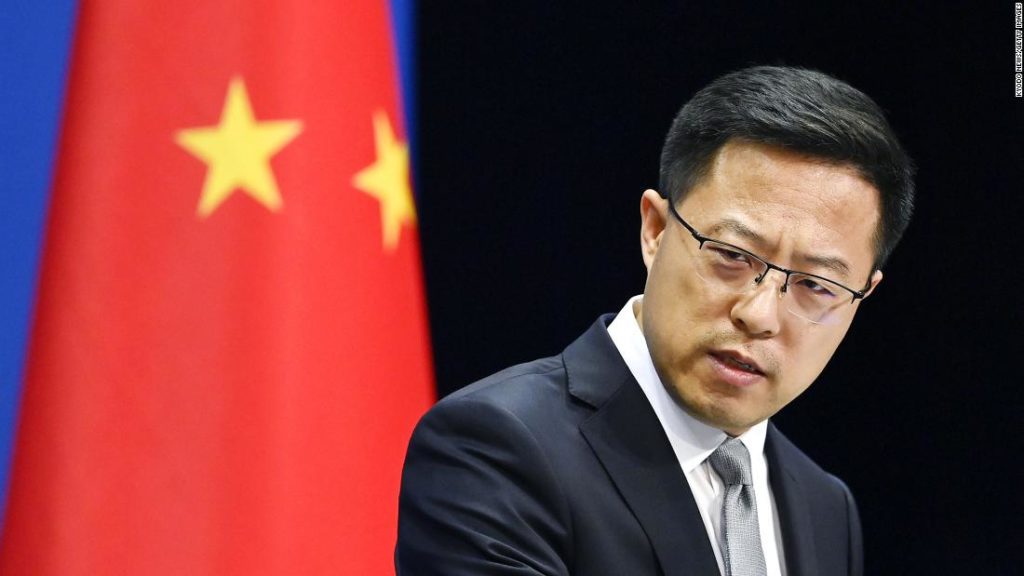The RCEP, which was signed on Sunday, is a huge trade agreement which brings together 14 countries in the Asia Pacific, including China and Australia, in a massive free trade deal.
But Chinese Foreign Ministry spokesman Zhao Lijian made it plain that there was no truce in sight during his daily news conference in Beijing Tuesday. Zhao said the Chinese government bore no blame for the breakdown in relations.
“(They) have subsequently taken a series of wrong moves related to China, which is at the root cause of China-Australia relations taking a sharp downturn and stuck in the current difficult situation … the responsibility for causing this situation doesn’t lie with China at all,” he said.
Zhao described three areas in which Australia had displeased the Chinese government — one of which was Morrison’s decision to call for an international inquiry. “(This) seriously interfered with international cooperation on pandemic prevention and control,” he added.
Zhao also berated Australia for repeatedly commenting on human rights abuses in Xinjiang and Hong Kong, as well as the Chinese military’s threatening behavior toward the self-governed island of Taiwan. “These practices have grossly interfered in China’s internal affairs and seriously hurt the feelings of the Chinese people,” Zhao said.
“It doesn’t mean that we will compromise at all in terms of our values, our security, our interests, but it does mean that the door is open from the Australian perspective,” he said.
“We have reached out at every possible level and pathway.”
Zhao’s comments came after Australia and Japan agreed “in principle” to a landmark defense treaty between the two countries, during a meeting in Tokyo between Prime Minister Morrison and Japanese leader Yoshihide Suga.
According to a statement from Morrison’s office, the Reciprocal Access Agreement (RAA) “will facilitate greater and more complex practical engagement between the Australian Defense Force and the Japanese Self-Defense Forces” and “will also support our joint involvement in broader multilateral exercises.”
In his first face-to-face meeting with Suga, Morrison thanked the Japanese Prime Minister’s predecessor Shinzo Abe for six years of negotiation on the agreement.
CNN’s Sophie Jeong contributed to this article.
You may also like
-
UK coronavirus variant has been reported in 86 countries, WHO says
-
NASA technology can help save whale sharks says Australian marine biologist and ECOCEAN founder, Brad Norman
-
California Twentynine Palms: Explosives are missing from the nation’s largest Marine Corps base and an investigation is underway
-
Trump unhappy with his impeachment attorney’s performance, sources say
-
Lunar New Year 2021: Ushering in the Year of the Ox

